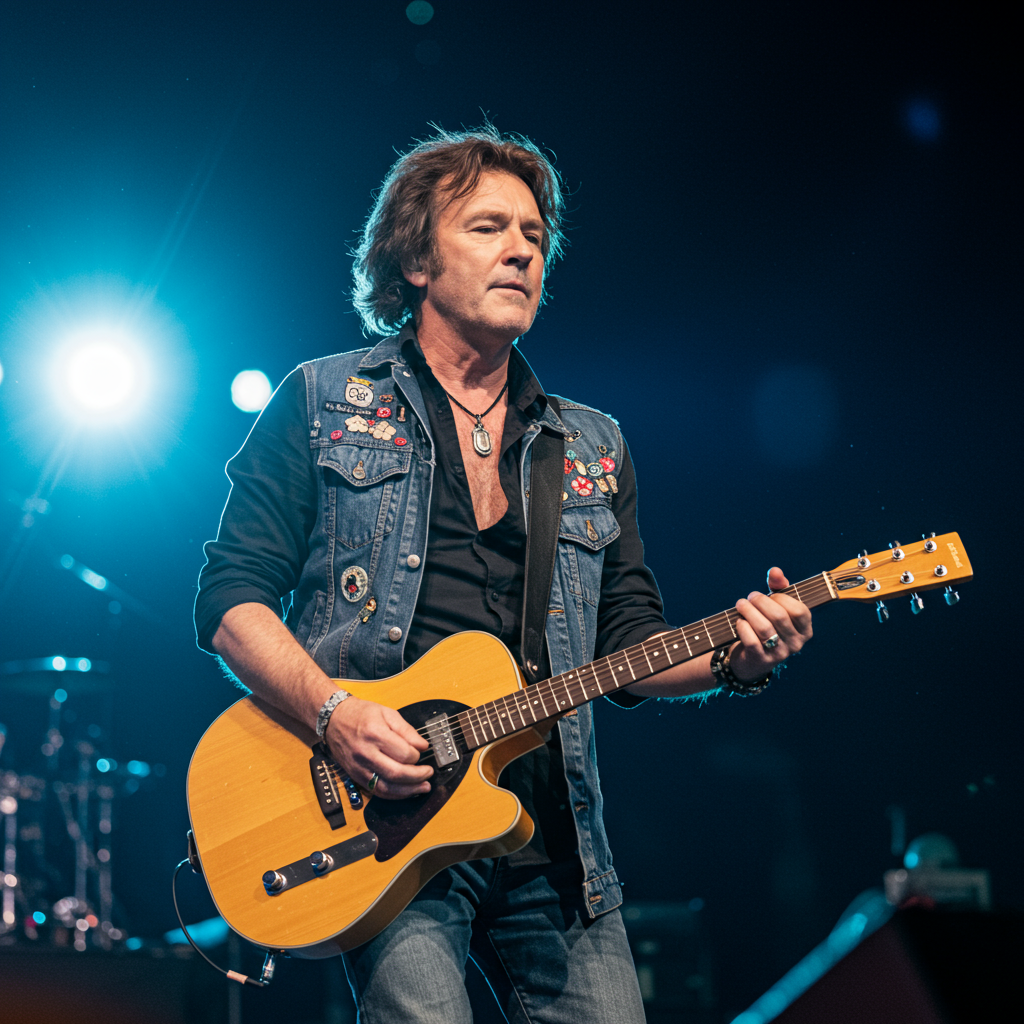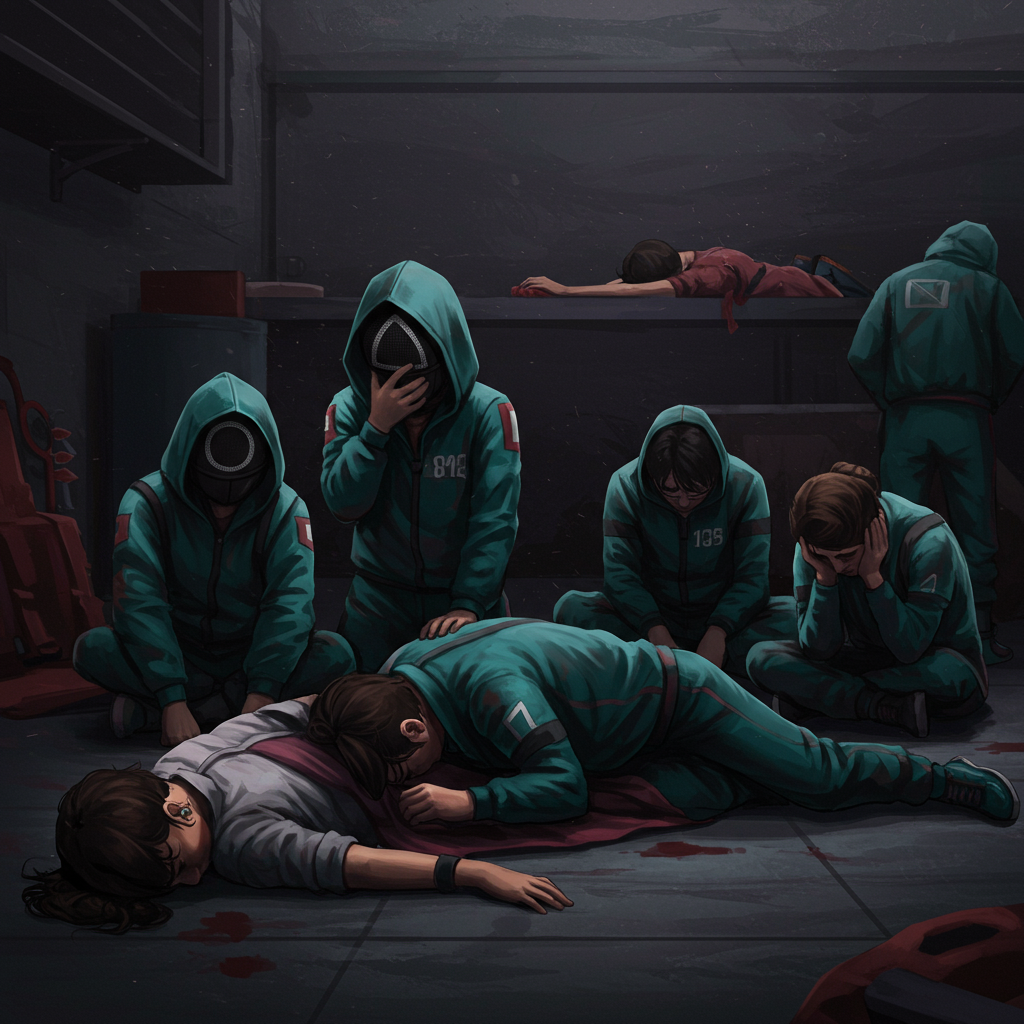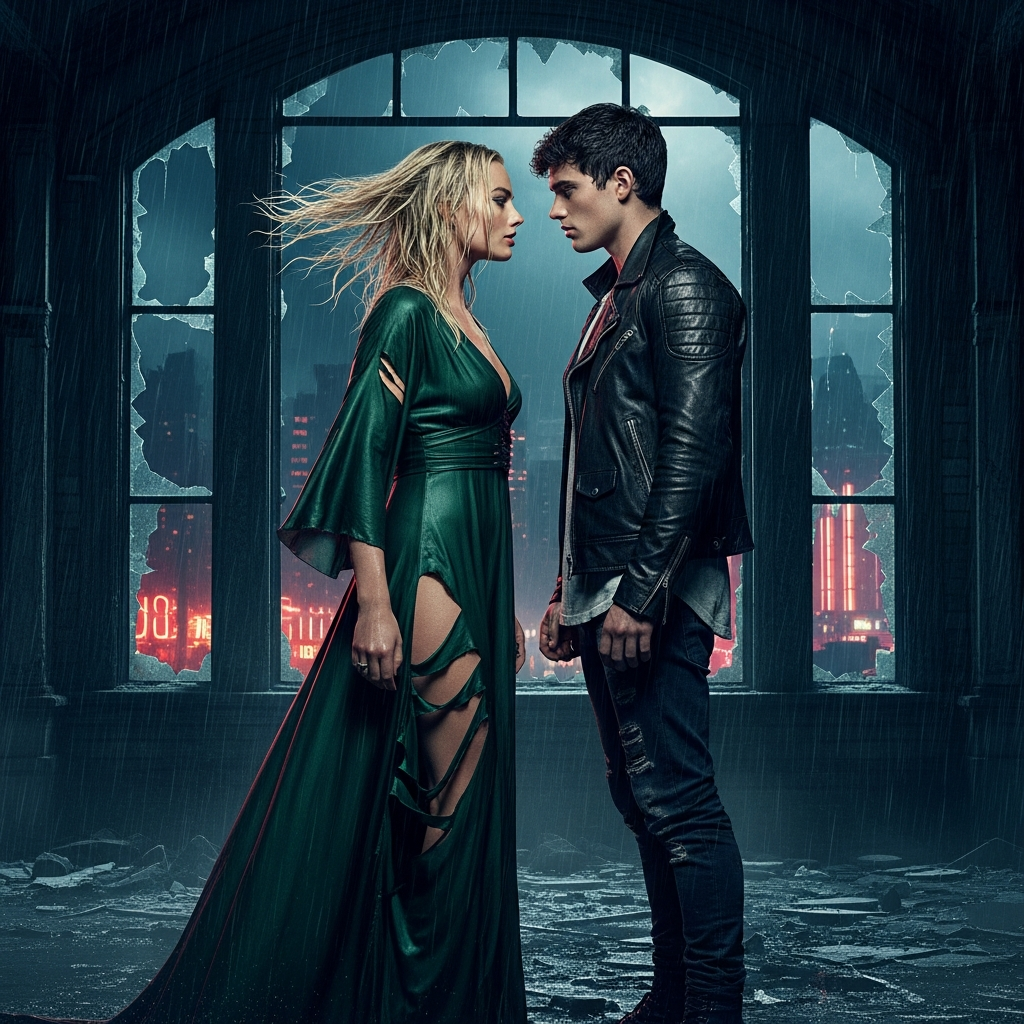glastonbury is famous for its music, mud, and moments that spark national conversation. This year, the festival delivered a moment that landed the BBC squarely in the middle of a firestorm. While many eyes were focused on the anticipated performance by the Belfast rap trio Kneecap, a different act on the West Holts stage ignited the real controversy: the punk duo Bob Vylan.
Just a few hours after taking the stage, Bob vylan’s set became the focal point of intense scrutiny. This was unexpected for some, as initial media attention, including comments from the Prime Minister, had centered on potential political fallout from Kneecap’s appearance. The BBC had even announced it wouldn’t live stream Kneecap’s show. Yet, it was Bob Vylan’s performance that ultimately generated the most significant backlash against the broadcaster.
A Performance That Crossed a Line
The set on Saturday afternoon quickly escalated. Lead singer Bobby Vylan reportedly made comments suggesting violence could be a means to convey a message. More controversially, he led the crowd in chants of “death, death to the IDF [Israel Defense Forces]”. Eyewitnesses, including the author of the original report, noted that this felt like a definitive line had been breached.
Festival organisers later agreed, stating that the comments went against the generally peace-loving, inclusive spirit Glastonbury aims to foster. The atmosphere at Glastonbury, often depicted as a welcoming space for all, appeared strained by these explicit calls for violence.
The band also used the “From the river to the sea” slogan during the performance. This phrase is highly contested, with interpretations varying widely. For some, it’s a call for Palestinian statehood across historic Palestine; for critics, it signifies the destruction of Israel. Interestingly, the author observed that this particular slogan did not seem to generate as strong a reaction from the crowd as the “death to the IDF” chants.
Official Reaction and Investigations Launched
The fallout was swift and significant. Avon and Somerset Police confirmed they had launched a criminal investigation into Bob Vylan’s set. They are reviewing footage to determine if statements made on stage constitute a criminal offence under public order laws. Police are also investigating comments made during Kneecap’s set.
Regulatory bodies and government figures also weighed in. Ofcom, the UK’s media regulator, expressed concern about the BBC’s live stream. They stated the BBC “clearly has questions to answer” and is urgently seeking details on the procedures in place for live events and editorial compliance.
The UK’s Culture Secretary, Lisa Nandy, addressed the issue in Parliament. She voiced disappointment and exasperation, highlighting multiple editorial failures at the BBC that suggest “a problem of leadership.” Nandy questioned why the live feed wasn’t immediately cut and what level of due diligence was performed beforehand. She warned the government would “intervene” if community safety was at risk and the BBC failed to uphold its standards.
Perhaps the strongest condemnation came from the Chief Rabbi of the United Kingdom, Sir Ephraim Mirvis. He publicly labelled the BBC’s airing of the performance as “vile Jew-hate” and a “time of national shame.” Sir Ephraim argued the BBC’s response was “belated and mishandled,” suggesting it undermined confidence in the broadcaster’s ability to address antisemitism seriously. He cautioned that allowing such “outright incitement to violence and hatred” to be presented as political commentary was a threat to society.
The BBC’s Difficult Position and Response
Caught in the crossfire, the BBC faced intense criticism for its handling of the situation. The perception was that the broadcaster was too slow to react as the controversial parts of the set unfolded live. The BBC has since publicly stated it regrets not pulling the live stream during Bob Vylan’s performance.
Decisions about live broadcasts are complex and require rapid editorial judgments. The BBC suggested that by the time the most controversial comments occurred towards the end of the set, and accounting for the time needed for editorial consultation, the performance might have already concluded. However, the set was later removed from repeat viewing on the BBC iPlayer.
The BBC acknowledged that, “with hindsight,” the stream should have been cut. A spokesperson called the sentiments expressed by Bob Vylan “utterly unacceptable” and stated they “have no place on our airwaves.” The corporation is now reviewing its guidance for covering future live events. This aims to make it clearer for teams on the ground when output should be immediately taken off air.
The incident highlights a fundamental challenge for the BBC: balancing freedom of expression with its responsibility to avoid broadcasting content that incites violence or hatred. Glastonbury attracts artists keen to express political views, and the BBC is naturally wary of being seen to censor opinion. However, incitement to violence is not merely an opinion; it can be a criminal act.
Divergent Experiences and Broader Context
The performance and its aftermath also illuminated the deep divisions surrounding the Israel-Gaza conflict, even within the diverse Glastonbury crowd. The sea of Palestinian flags visible during Bob Vylan’s set clearly indicated strong solidarity with the Palestinian people among many attendees.
However, the atmosphere was not universally welcoming. The author spoke to Jewish festival-goers who reported feeling unsafe and needing to conceal their identities. One attendee highlighted the stark difference they felt, stating that in a place designed to be accepting of everyone, “there’s a difference if you’re a Jew.” Hearing these contrasting perspectives is crucial for understanding the incident’s full impact.
This controversy comes at a difficult time for the BBC. The broadcaster is already facing scrutiny over its coverage of the Israel-Gaza conflict. Investigations are ongoing into a previous documentary about children in Gaza. Another documentary focusing on doctors in Gaza was dropped by the BBC and is now scheduled to air on Channel 4. The Bob Vylan incident has undoubtedly compounded these existing challenges for the publicly-funded corporation.
The questions raised by Bob Vylan’s performance are directed at multiple parties: the band members for their words, the festival organisers for booking the act and their response, and the BBC for its broadcast decisions. While the band defended their actions online, stating they were targeting a “violent military machine” and denying being “for the death of Jews,” the scrutiny on the BBC remains intense due to its public role and specific editorial responsibilities.
Frequently Asked Questions
What specific controversial elements were in Bob Vylan’s Glastonbury set?
During their performance on the West Holts stage, Bob Vylan’s lead singer led the crowd in chants of “death, death to the IDF” (Israel Defense Forces). He also reportedly made comments suggesting the use of violence for messaging and used the “From the river to the sea” slogan. These elements sparked immediate controversy and later led to official investigations and widespread criticism.
How did the BBC respond to the Bob Vylan performance controversy?
The BBC initially broadcast part of the set live but later removed it from repeat viewing on BBC iPlayer. Following extensive criticism, including from the Chief Rabbi and Culture Secretary, the BBC stated it regretted not pulling the live stream during the performance. They acknowledged that, with hindsight, this should have happened and announced a review of their guidance for covering live events to clarify when output should be taken off air.
What wider issues does the Bob Vylan Glastonbury incident highlight?
The controversy underscores the tension between freedom of artistic expression and the prohibition against inciting violence, particularly in public forums like large festivals. It also reflects the heated and often divisive debate surrounding the Israel-Gaza conflict playing out in cultural spaces. For the BBC, it highlights challenges in navigating live broadcasts of politically charged performances and compounds existing scrutiny over its coverage of the conflict.
Navigating Complexities On and Off Stage
The Bob Vylan incident at Glastonbury serves as a powerful example of how cultural events can intersect sharply with geopolitical conflicts and domestic political sensitivities. It forced difficult conversations about where the line lies between provocative artistic expression and harmful incitement.
For the BBC, the event has reinforced the complexity of broadcasting live performances where unexpected political commentary might occur. The ongoing police investigation and regulatory reviews mean the fallout from this relatively brief set on a Saturday afternoon stage at Worthy Farm is far from over, posing significant questions for artists, organisers, and broadcasters alike as they navigate these contentious times.
Word Count Check: 1178



